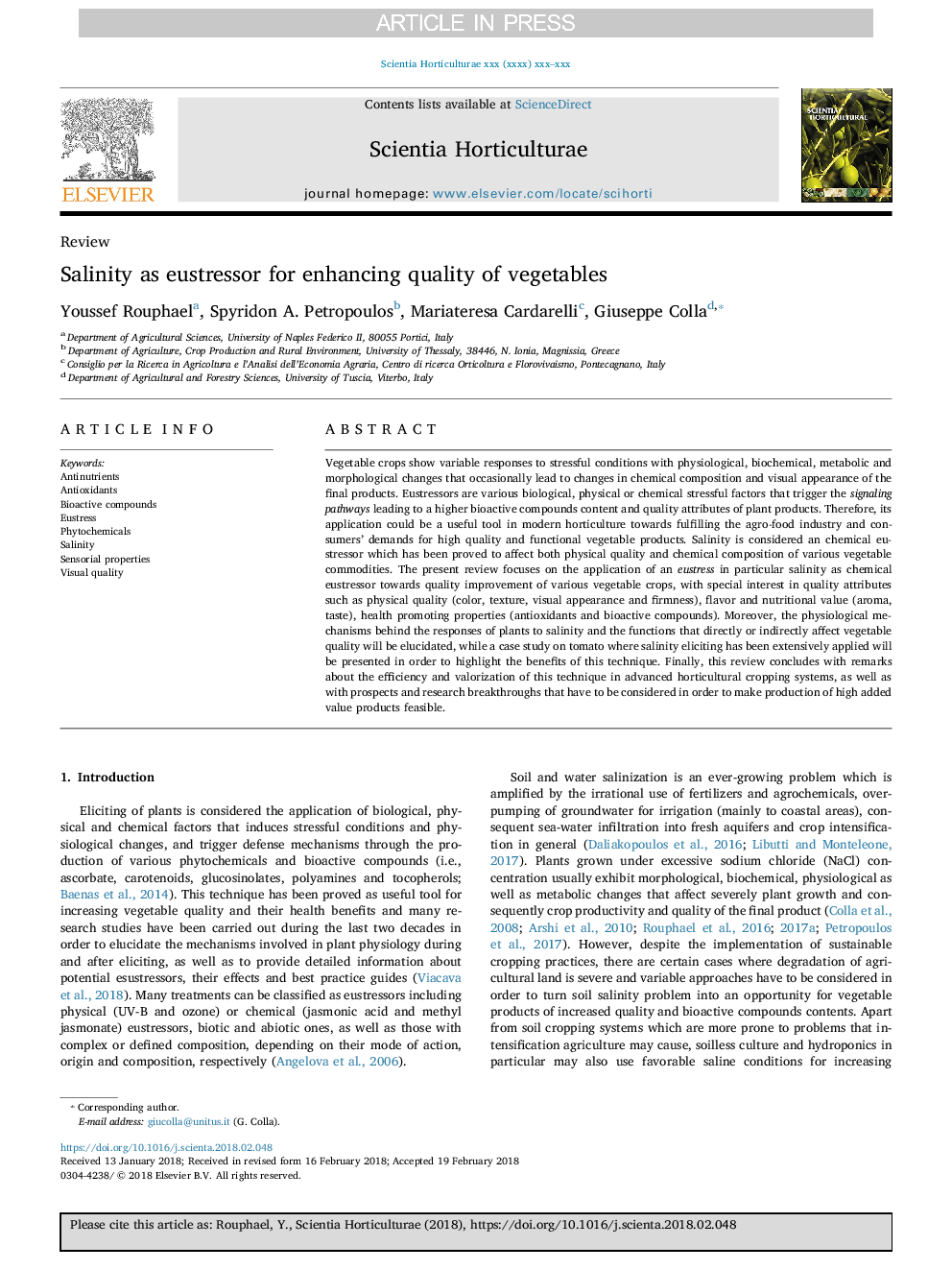| Article ID | Journal | Published Year | Pages | File Type |
|---|---|---|---|---|
| 8892794 | Scientia Horticulturae | 2018 | 9 Pages |
Abstract
Vegetable crops show variable responses to stressful conditions with physiological, biochemical, metabolic and morphological changes that occasionally lead to changes in chemical composition and visual appearance of the final products. Eustressors are various biological, physical or chemical stressful factors that trigger the signaling pathways leading to a higher bioactive compounds content and quality attributes of plant products. Therefore, its application could be a useful tool in modern horticulture towards fulfilling the agro-food industry and consumers' demands for high quality and functional vegetable products. Salinity is considered an chemical eustressor which has been proved to affect both physical quality and chemical composition of various vegetable commodities. The present review focuses on the application of an eustress in particular salinity as chemical eustressor towards quality improvement of various vegetable crops, with special interest in quality attributes such as physical quality (color, texture, visual appearance and firmness), flavor and nutritional value (aroma, taste), health promoting properties (antioxidants and bioactive compounds). Moreover, the physiological mechanisms behind the responses of plants to salinity and the functions that directly or indirectly affect vegetable quality will be elucidated, while a case study on tomato where salinity eliciting has been extensively applied will be presented in order to highlight the benefits of this technique. Finally, this review concludes with remarks about the efficiency and valorization of this technique in advanced horticultural cropping systems, as well as with prospects and research breakthroughs that have to be considered in order to make production of high added value products feasible.
Keywords
Related Topics
Life Sciences
Agricultural and Biological Sciences
Horticulture
Authors
Youssef Rouphael, Spyridon A. Petropoulos, Mariateresa Cardarelli, Giuseppe Colla,
